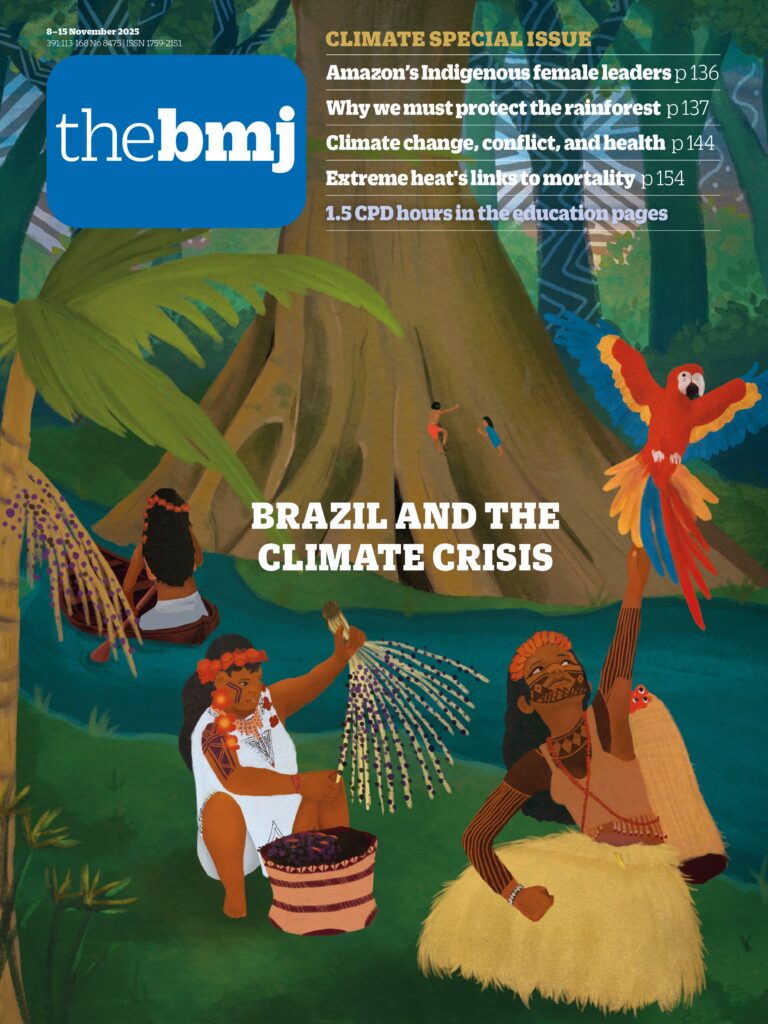- Carlos Dora, visiting professor of public policies1,
- Eugenio Scannavino Netto, founding director2,
- Andre Guimaraes, executive director3
- 1Federal University Rio Grande do Sul, Brazil
- 2Projeto Saude e Alegria, Amazon, Brazil
- 3Instituto de Pesquisa Ambiental da Amazonia (IPAM), Brazil
- Correspondence to: C Dora carlos.f.dora{at}gmail.com
The Amazon rainforest is the world’s largest tropical forest and one of its most vital ecosystems for human health and planetary stability. It stores the equivalent of 15-20 years of global carbon emissions and regulates rainfall patterns critical to food security across Latin America and beyond.1 The forest’s loss could trigger catastrophic warming—up to 14°C—and destabilise climate systems worldwide.2
Yet, this vital biome is under siege. Satellite monitoring shows that nearly 20% of the forest has been lost since 1970,3 with deforestation peaking during 2019-22 under Brazil’s climate change denialist government.4
The 2025 UN climate conference (COP30), the first to be held in the Amazon, has an opportunity to recentre forests and biodiversity as pillars of the global climate system. The negotiating …

